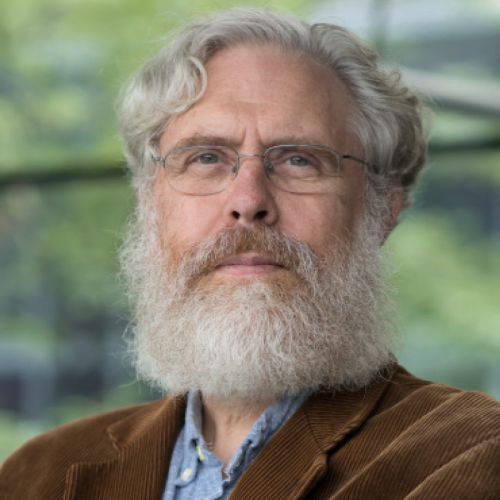
George Church
Genomics Pioneer
GEORGE CHURCH, 63, is a serial entrepreneur and genomics pioneer at Harvard University. On February 7, 2018, he launched his latest startup, Nebula Genomics, which plans to reduce genome cost to the patient from $999 today to $0 (or even pay them) and securely query the data via blockchain and other encryption tools so that you retain permanent ownership and control of your DNA data (unlike companies like 23andMe and AncestryDNA, which own your genomic data once you provide a saliva sample). Church is actually very public about his personal medical data. He published his own genome online for all to see and freely discusses the medical conditions that govern his life—high cholesterol, dyslexia, and narcolepsy. Falling asleep multiple times a day, he says, affords him more time for visionary dreaming. One of his dreams—of woolly mammoths roaming Earth again—is now the subject of a de-extinction effort at Harvard involving the insertion of DNA preserved from the Pleistocene into modern Asian elephants.
Church has been on the bleeding edge of genetics research for four decades. He invented direct genome sequencing in 1984, which led to a partial $3 billion human genome in 2003 and $999 clinical, high-quality genome today. More recently, Church has championed the well-known CRISPR gene-editing technology. Church envisions a time when we will not only edit DNA but write genetic code, enabling us to engineer cells resistant to all viruses, to grow our own liver in a pig to replace the faulty one we were born with, and to grow a brain in a petri dish.
Church has also been a leader in demonstrating that DNA is an efficient and durable computer storage medium. In 2012, he encoded a 50,000-word book he co-authored, called Regenesis: How Synthetic Biology Will Reinvent Nature and Ourselves, into DNA. In early 2016, his team took Eadweard Muybridge’s classic galloping horse footage from the first motion picture ever made (in 1878), encoded it in bacterial DNA, and “played back” the movie from the DNA.